As I prepared to answer a rather long list of questions for a Macedonian newspaper, I realized that I would be motivated to write more thoroughly and spend more time on the answers if I knew I would be publishing them on my blog. I chatted with the journalist and he agreed. Thanks Vlado.
So here are my answers to some questions about the Internet, CC and Mozilla. Not that new for those of you who know this area, but if you're going to ask me some basic questions, you can start here. ;-)
Maybe I should be plopping this stuff onto a wiki...
Here are the questions:
1. What is Creative Commons license?
From the website: http://creativecommons.org/about/think
How does a Creative Commons license operate?
Creative Commons license are based on copyright. So it applies to all works that are protected by copyright law. The kinds of works that are protected by copyright law are books, websites, blogs, photographs, films, videos, songs and other audio & visual recordings, for example. Software programs are also protected by copyright but, as explained below, we do not recommend that you apply a Creative Commons license to software code or documentation.
Creative Commons licenses give you the ability to dictate how others may exercise your copyright rights—such as the right of others to copy your work, make derivative works or adaptations of your work, to distribute your work and/or make money from your work. They do not give you the ability to restrict anything that is otherwise permitted by exceptions or limitations to copyright—including, importantly, fair use or fair dealing—nor do they give you the ability to control anything that is not protected by copyright law, such as facts and ideas.
Creative Commons licenses attach to the work and authorize everyone who comes in contact with the work to use it consistent with the license. This means that if Bob has a copy of your Creative Commons-licensed work, Bob can give a copy to Carol and Carol will be authorized to use the work consistent with the Creative Commons license. You then have a license agreement separately with both Bob and Carol.
Creative Commons licenses are expressed in three different formats: the Commons Deed (human-readable code), the Legal Code (lawyer-readable code); and the metadata (machine readable code). You don’t need to sign anything to get a Creative Commons license—just select your license at our ‘Publish’ page.
One final thing you should understand about Creative Commons licenses is that they are all non-exclusive. This means that you can permit the general public to use your work under a Creative Commons license and then enter into a separate and different non-exclusive license with someone else, for example, in exchange for money.
2. Can you explain the concept of CC?
From the website:
http://creativecommons.org/
Creative Commons provides free tools that let authors, scientists, artists, and educators easily mark their creative work with the freedoms they want it to carry. You can use CC to change your copyright terms from "All Rights Reserved" to "Some Rights Reserved."
We're a nonprofit organization. Everything we do — including the software we create — is free.
http://creativecommons.org/license/
Creative Commons helps you publish your work online while letting others know exactly what they can and can't do with your work. When you choose a license, we provide you with tools and tutorials that let you add license information to your own site, or to one of several free hosting services that have incorporated Creative Commons.
3. I have a blog. Why should I use CC license?
If you do not use a Creative Commons license, it is not clear to people reading your blog what rights they have to reuse your work. Other than "fair use" or other narrow uses permitted under the laws of various countries, people will have to ask specific permission to reuse photos, text and screenshots of your blog. With a Creative Commons license, people can know if they can use things from your blog without asking permission. The CC license also stipulates that they must give you attribution so that when they use things from your blog, they are required to put your name on it.
For most bloggers who are looking for an audience and to join the conversation, allowing people to use your work and share your knowledge increases the likely hood that you would be quoted on other blogs. If you choose the most liberal license, CC-BY that allows commercial reuse, you are more likely to show up in a newspaper, magazine or TV show. As a blogger, you should weight the "cost" to you of someone using your work in a commercial way, with the attention you would receive by being shown on TV, etc.
Many main stream media publications already quote and use material blogs without permission, but CC allows them (and non-commercial users like bloggers) to know your intent which is important for the ethical and legally conscious sites and shows.
4. You said that now days there is a change of the consumer profile and consumer needs. Can you explain this? (The example of Pepsi and ITunes)
The Internet has enabled a dramatic change in the way we interact with content. We no longer have to be passive consumers, but can be participants in the global dialog of media. The problem is that new technologies and the capability to do things doesn't mean people will. Most new forms of media initially mimicked the old. For instance, photography was for a long time, just like paintings in form. TV shows looked like radio with pictures. Similarly, most people who are in charge of deciding how the Internet is used from a legal or corporate perspective still use the Internet and consume media as if they were in the broadcasting era.
The key to understanding business and the law in the future is to look at the behavior of the young people not as crime, but rather as a new behavior that the world will have to adapt to.
5. Can you explain the concept of Professionals vs Amateurs?
When the cost of the distribution of content was very high, the business of the manufacture and distribution of content was very similar to the industrial manufacturing process. Because of the high cost, most content was created by professionals and the tools for creation and distribution were not available for amateurs. The notion that professionals were high quality and amateur meant low quality sort of made sense in this era.
However, amateurs do things for the love of it. Amateurs do things for no pay not necessarily because they are lower quality. The problem was that in the past, to even make films or TV or music, it was a requirement to be a professional.
Now with low cost creation and distribution technology, the amateur is again part of the creativity world and this notion that professionals are better is less valid. People don't work on Linux because they aren't good enough to work at Microsoft and people don't write blogs just because they aren't good enough to be professional.
What Creative Commons is doing is trying to provide a license and choices for more types of creators than just the industrial professional - for people to whom the sharing is part or all of the reason that they make things. The current application of copyright is skewed mostly for the broadcast manufacture, distribute, consume, model of the world.
6. You said that, now days, more and more people choose happiness over pleasure. How this reflects on Internet?
I think that money can buy pleasure, but money can't necessarily buy happiness. I think that more and more people are choosing to do things in order to become happy instead of doing things just for the money. I'm not sure that there are more people making this choice, but I think that the Internet enables a new kind of sharing and collaboration that allows people who pursue happiness to produce things together. Yochai Benkler would call this Commons Based Peer Production. While I don't think that happiness is the only incentive to collaborate and produce on the Internet, I think that choosing happiness over pleasure / amateur over professional is a core driving element of open source and open content that is becoming exceedingly important on the Internet.
7. Is Internet a initiator of this process?
I'm not sure what this means...
8. How do Hollywood and other major industries accept CC?
There is a mixed response. I think that because the core values of CC involve Free Culture, I think that often this is misinterpreted to mean anti-copyright. In fact CC is not anti-copyright. It is just asking to allow artists to make choices based on what they would like to do.
I think that the enlightened people in the industry know, like and use CC. Some have even begun to understand the commercial benefit of using CC for marketing lesser know artists or for promotion already well know artists. I think that as new business models that involve sharing evolve, people will find that sharing actually makes business sense.
I think that we are struggling to make this case because for most people any change is frightening and disruptive. I am confident, however, that we will wind the hearts and minds of most people in Hollywood.
A good example is the Internet. Initially the Internet (or TCP/IP) was at odds with what most of the worlds companies and standards bodies wanted to do. it was considered rogue and illegal in some countries. Pushing the Internet was a political statement. Now everyone uses it. Some people would like to make it more closed and some of us fight to keep it open, but for the most part, people see its value and realize now that open is better than closed. I think that CC might follow a similar path.
9. What is for you a REMIX, an what an ORIGINAL?
Very little of what is created is truly original. Almost every kind of derivative work involves creativity. I personally believe that culture and ideas and our role is really as participants in a vast evolution of information passing from the past to the future. In that sense, I don't think that it is very wise to differentiate remix and original works too much.
For instance, this article that involves and interview with me... is this original or a remix? What parts of it are original? In fact is it a collaboration between us. I think that you can collaborate in your mind with things you have heard or have inspired you in the past, you can collaborate with books or images that you find, you collaborate with people are you talking to... but in the end, most things we do involve other people and in that sense it is remix.
10. How does technology reflects on low?
Sorry, I'm not sure what this means.
11. What is the concept of Science Commons license?
Science Commons is not a license, it is a new project.
From the website: http://creativecommons.org/weblog/entry/5695
Science Commons works on these problems: inaccessible journal articles, tools locked up behind complex contracts, socially irresponsible patent licensing, and data obscured by technology or end-user licensing agreements. We translate this into projects, with work in three distinctly different project spaces: publishing (covered by copyright), licensing (covered by patent and contract) and data (in the US, covered only by contract). We work on agreements between funders and grant recipients, between universities and researchers and between funders and universities—all in the service of opening up scientific knowledge, tools and data for reuse. We also promote the use of CC licensing in scientific publishing, on the belief that scientific papers need to be available to everyone in the world, not simply available to those with enough resources to afford subscription fees.
12. Is CC a left wing oriented movement?
;-)
I think that a lot of the ideas about sharing and Free Culture on more left than right, but I think that as CC becomes more ubiquitous, it is becoming more and more neutral. Again, I would suggest looking at the Internet. The open and free nature of the Internet resonates deeply with the people who are in the left wing, but is incredibly important and central for the military and the right wing.
There is definitely a left wing component of the CC movement, but to be successful, CC will need the buy-in and support of everyone.
13. How is CC different from Copyright?
CC builds upon copyright and doesn't replace it. CC licenses are licenses that use copyright law in various countries to describe how people want to share, very similar to how open source software licenses use copyright to make software shareable.
14. Tell us more about your work in Mozzila foundation?
The Mozilla Foundation is a non-profit organization that is working for the public benefit. There are no shareholders and the board is not paid.
One useful reference for this might be the Mozilla Foundation manifesto:
http://www.mozilla.org/about/mozilla-manifesto.html
In it, we pledge:
The Mozilla Foundation pledges to support the Mozilla Manifesto in its activities. Specifically, we will:
* build and enable open-source technologies and communities that support the Manifesto's principles;
* build and deliver great consumer products that support the Manifesto's principles;
* use the Mozilla assets (intellectual property such as copyrights and trademarks, infrastructure, funds, and reputation) to keep the Internet an open platform;
* promote models for creating economic value for the public benefit; and
* promote the Mozilla Manifesto principles in public discourse and within the Internet industry.
Some Foundation activities–currently the creation, delivery and promotion of consumer products–are conducted primarily through the Mozilla Foundation's wholly owned subsidiary, the Mozilla Corporation.
15. In Macedonia the most famous Mozzila product is Firefox. Why is Firefox, and bunch of other products, free of charge for costumers?
Firefox is Open Source. Since Mozilla is a public benefit and we are trying to offer value for the public, we have decided that providing it for free helps the users and the Internet the most.
16. What is the future of Internet?
;-) Well hopefully Macedonia plays an important part of the future. The future is what we make it and we all need to work together to keep the Internet open and promote tools that provide voice to and empower the people.
![Joi Ito [logo]](/_site/img/joi-ito-logo-300.png)



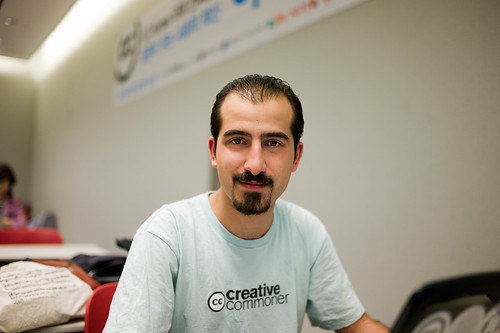

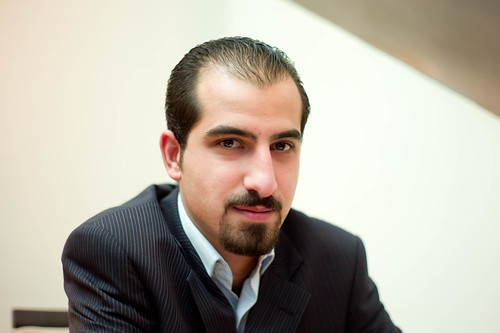



 JUMP系列 Photographer:老0
JUMP系列 Photographer:老0
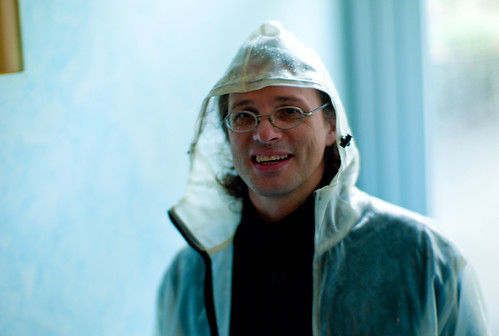

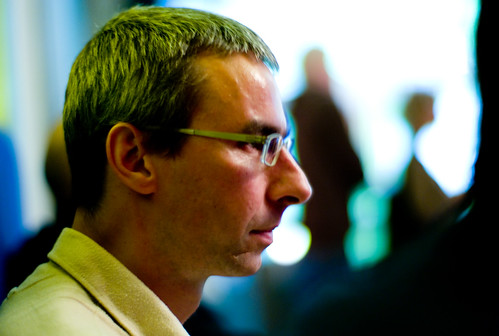








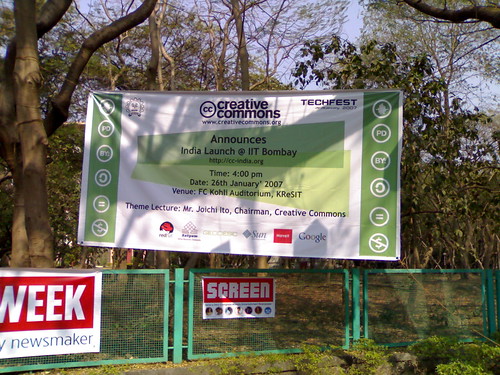














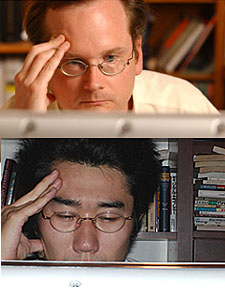










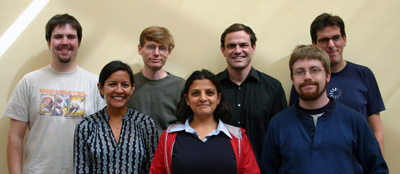

 As we start working on the details involved in the launch the sampling license over at Creative Commons, we find, as always, that God is in the details. The idea behind the sampling license is that many artists don't mind if their music is sampled by other artists as long as there is attribution. The Creative Commons is
As we start working on the details involved in the launch the sampling license over at Creative Commons, we find, as always, that God is in the details. The idea behind the sampling license is that many artists don't mind if their music is sampled by other artists as long as there is attribution. The Creative Commons is